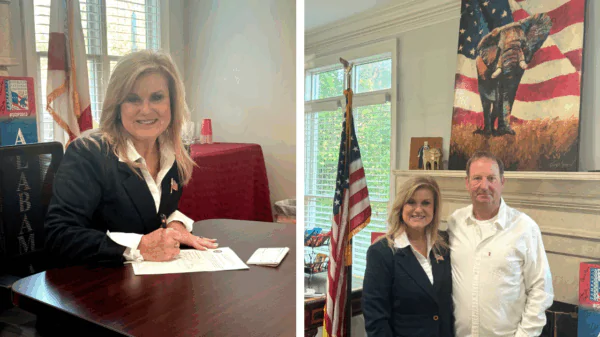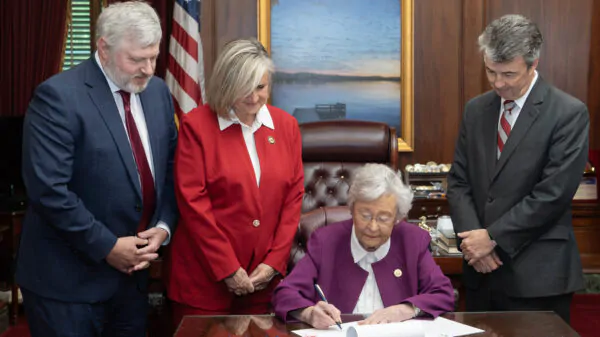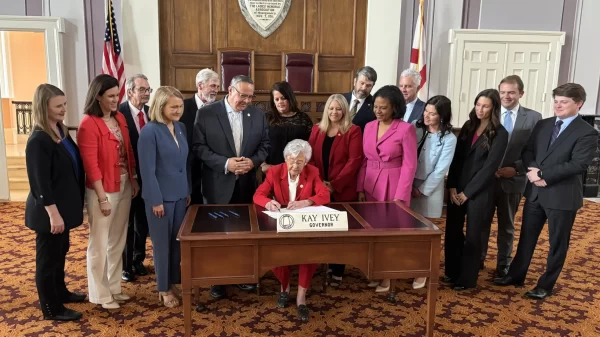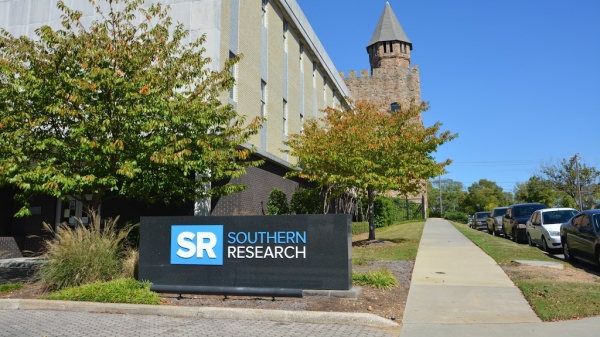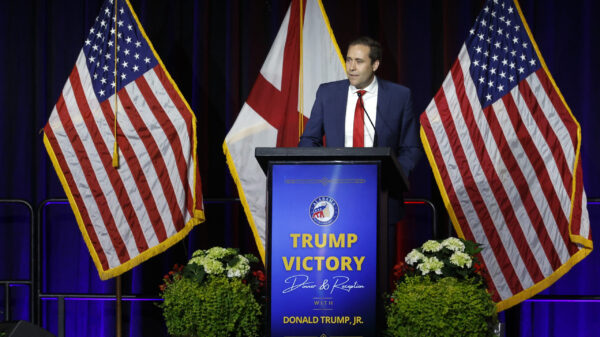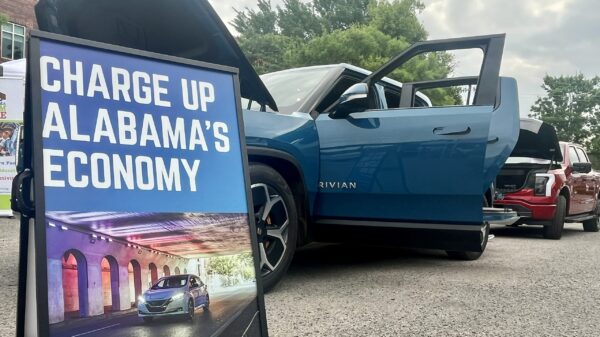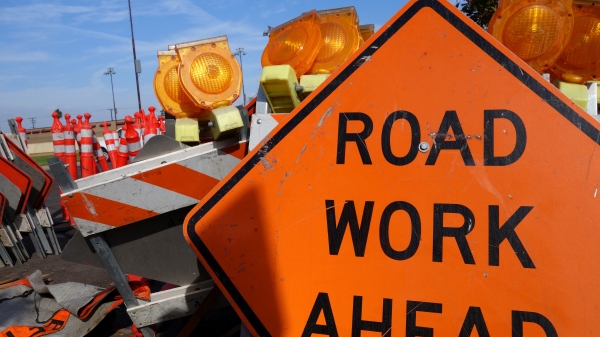Tuesday, the Senate Environment and Public Works Committee advanced a bipartisan highway bill that included a provision that is similar to one first written by U.S. Senator Doug Jones, D-Alabama, in the Be Safe Act. Jones said a new grant program in the bill could provide new funding for roads and bridges, including the Mobile I-10 bridge.
“The new PROTECT grants program could provide a much-needed source of federal revenue for the Mobile Bay Bridge, our aging rural roads, and other infrastructure projects across Alabama,” Jones said in a statement.
The Senate committee approved the $287 billion highway bill unanimously. Jones’ office called it the most substantial highway bill in history. America’s Transportation Infrastructure Act includes a new infrastructure funding program similar to legislation authored by Jones.
The bill establishes a new program, called PROTECT grants, that would provide $1 billion each year for competitive grants and $4 billion in formula funding for improving road and bridge infrastructure, and includes provisions from Senator Jones’ Be SAFE Act. Senator Jones introduced the Be SAFE Act in March in an effort to bring more federal dollars to Alabama to invest in life-saving evacuation routes and repair and improve roadways in the state’s small and rural communities.
Jones has criticized recent Alabama Department of Transportation Mobile Bay Bridge toll proposals and pledged to search for additional federal resources for the bridge.
“Communities that receive these grants would not only benefit from federal investments to improve, replace, or build new roads, bridges, and evacuation routes—but they could also bring a huge economic boost,” Jones said. “I’m proud that the committee built on a program that I introduced and I look forward to seeing all the ways it could benefit Alabama communities in the future.”
The PROTECT grants program includes two components that were priorities for Senator Jones in making sure the program serves Alabama’s small and rural communities: Funding for planning grants to help cash-strapped communities offset the high cost of technical assistance needed before they can even apply for actual infrastructure funding, which can sometimes cost as much as $40,000; A 25-percent set-aside for grants to rural communities with populations under 200,000, which Senator Jones negotiated with committee members. This will ensure that smaller Alabama communities won’t have to compete with larger cities in other states for the same funds.
The PROTECT grants would come in three categories: of PROTECT grants: Resilience Improvement Grants to improve or replace existing surface transportation infrastructure at risk from extreme weather events and natural disasters; Community Resiliency and Evacuation Routes to improve or establish roads for better and safer evacuation during severe weather events; and At-Risk Coastal Infrastructure Grants to strengthen, stabilize or elevate highways and bridges subject to long-term risk of natural disasters, storm surges, coastal erosion or coastal flooding.
The bill would authorize highway projects for five years starting on October 1, 2020. ALDOT wants to begin construction early next year on their proposal for the bridge.
The ALDOT proposal to fund the $2.1 billion bridge and bayway replacement by tolling I-10 between Mobile and Baldwin Counties is highly unpopular with the residents of the two coastal counties. Over 42,000 residents have joined a Facebook group, led by popular State Auditor Jim Zeigler (R), in opposing the plan.
Zeigler said in a press statement Tuesday night that he will call on Alabama Governor Kay Ivey (R) and ALDOT to halt the $2.1 billion toll project for Mobile Bay and await possible inclusion in the new $287 billion fund.
Zeigler said that the new bridge over the Mobile River and Bayway replacement qualifies in two ways – a hurricane evacuation route and traffic congestion and capacity enhancement.
The bill now goes to the Senate floor. If it passes there, it must go to the House of Representatives and, if passed there, onto the President’s desk for signature into law. President Donald J. Trump (R) has been a strong supporter of an infrastructure bill.
House conservatives have been critical of passing a massive infrastructure bill without doing anything to control the growing national debt. Unless this is paid for with a federal fuel tax increase, all the $287 billion would likely be paid for with deficit spending.
This is a tricky situation for ALDOT because they have invited three construction and engineering conglomerates to bid on their $2.1 billion bridge project within the next 80 days. If ALDOT and the Governor were to sign that contract to form a public-private partnership (P3) then those private bridge builders would have the right to toll the new bridge and the existing Wallace Tunnels for the next 55 years, even if a federal funding solution later became available.
The Mobile Bay Bridge project is in a designated Opportunity Zone. Under existing federal and state laws, if the P3 project were approved as an O-Zone project, the investors could be shielded from paying most federal, state, and local taxes on their profits and construction materials for decades to come.
Motorists who can not afford or refuse to pay the tolls would have to take the causeway by the World War II battleship or the Africatown bridge.
It is the ALDOT position that there will not be any new bridge over Mobile Bay unless it is a toll bridge.


